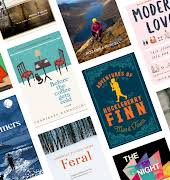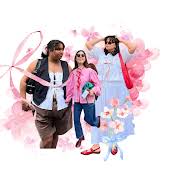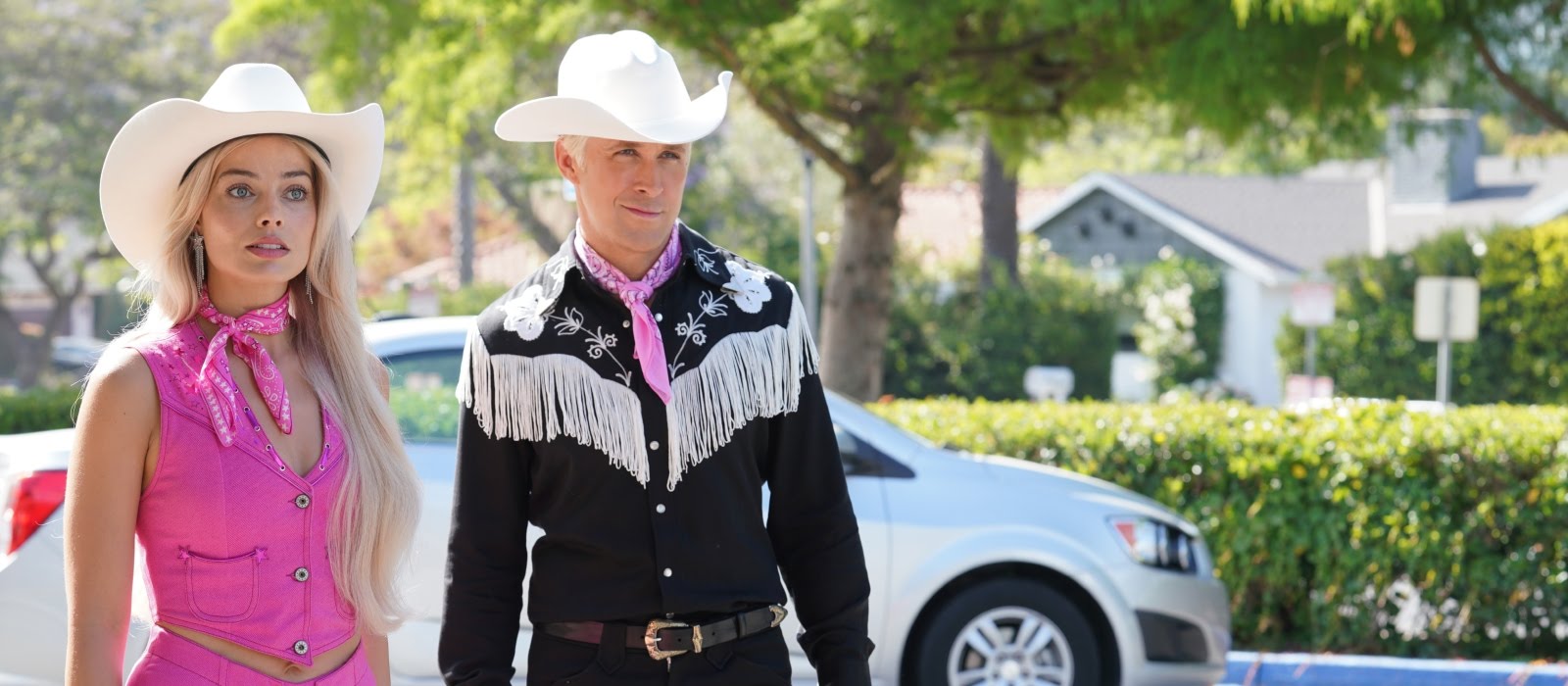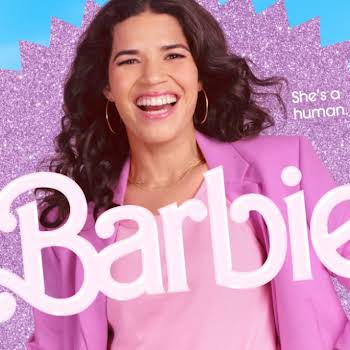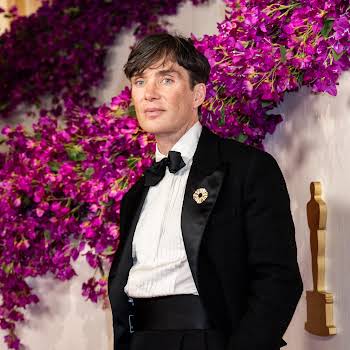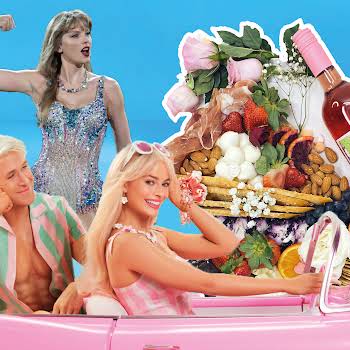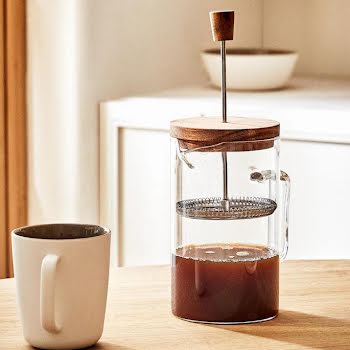Jo Koy: Women’s interests (and successes) deserve more respect
Not only were Jo Koy’s Golden Globes quips not funny, they were also hugely disrespectful to the talents and achievements of women everywhere.
Greta Gerwig’s Barbie movie is yes, a movie about a girls’ doll but it’s also about girlhood and friendship and the raw experience of being a woman in the modern world. It’s funny and clever and will probably make you cry. Christopher Nolan’s film, Oppenheimer, is about the creator of the atomic bomb – it might make you cry, but for a very different reason. The former did better at the box office, but the latter has generated more ‘serious’ discourse.
Here’s how Jo Koy, host of the Golden Globes, differentiated between the two films over the weekend:
“Oppenheimer is based on a 721-page Pulitzer Prize-winning book about the Manhattan Project, and Barbie is on a plastic doll with big boobies.”
My eyes just rolled so far back into my head.
On opening weekend, Greta Gerwig’s Barbie movie made $155 million at the US box office. Christopher Nolan’s historical biopic made just over half that at $80.5 million.
Going by the figures alone, Barbie is the out-and-out winner here – the Golden Globes agree, giving Gerwig the gold for Cinematic and Box Office Achievement this year. And yet, there still seems to be the slightly supercilious belief that Nolan’s masterpiece is better simply because it’s more “serious”. Why is it that women’s interests and successes are rarely (if ever) considered important?
Let me refer you, for a moment, to a brilliant newsletter by Katrine Kielos-Marçalin in which she remembers the time she met Harry Styles.
Invited to attend a press junket for his war movie Dunkirk, Kielos-Marçalin recalls how she and a group of other journalists started their day with a 7am private screening of the movie at a London Imax – an experience she described as “intense”.
After the film, the assembled media were ushered into a room at “one of the fancier London hotels” where they were to wait their turn to meet Styles, the director (coincidentally, Christopher Nolan) and other members of the cast.
According to Kielos-Marçalin, the room was “a bit chilly” which prompted most of the female journalists to start pulling their coats on. “If you are familiar with the work of Caroline Criado Perez (which you all should be) you know that air conditioning temperature is often set based on a formula developed around the metabolic resting rate of the average forty-year-old man. This is usually too cold for the average woman,” she continues.
It’s at this point, that Styles walks in. “He looked around the room and IMMEDIATELY noticed that the women looked cold and IMMEDIATELY asked if he could turn the heating up. He even got up and tried to do it himself (unsuccessfully). He was the only man that day who noticed.”
Why is that important? After One Direction disbanded, Rolling Stone asked Styles if he felt pressured to prove himself as a “serious musician” with “an older crowd”. His reply tells us everything we need to know: “Who’s to say that young girls who like pop music – have worse musical taste than a 30-year-old hipster guy?” The Beatles, as he points out, became successful thanks to hordes of screaming teenage girls.
“You gonna tell me they are not serious? How can you say young girls don’t get it? They’re our future. Our future doctors, lawyers, mothers, presidents, they kind of keep the world going. Teenage-girl fans – they don’t lie. If they like you, they’re there. They don’t act ‘too cool.’ They like you, and they tell you. Which is sick.”
TLDR; Harry Styles has made a career of not looking down on female preferences or things commonly perceived as female. He’s tapped into a market that is largely overlooked and it’s catapulted him to global acclaim as a result.
Comedian Matt Rife didn’t like that his audience was largely female (even though they helped land him a Netflix special), so he made a sexist domestic abuse joke to alienate them. Safe to say, Styles is the exception, not the rule.
Historically, people don’t like things that are marketed specifically to women. Research from Harvard Business School showed that loyal customers “often get upset when a brand associated with men expands to include products perceived as feminine”. “Coca-Cola couldn’t get American men to drink Diet Coke because women liked it.” The solution? Launching Coke Zero in a “manly black tin”, as Kielos-Marçalin put it.
Things that are perceived as being “feminine” are, more often than not, also considered less than – but write them off and that’s 50% of the population that isn’t being catered to. Barbie’s box office stats show that not only do women have spending power, but they’re more than willing to exercise it… and have been for almost 80 years.
anyways funny how teenage girl fans are the most criticized and derided when theyre some of the most powerful trendsetters when it comes to pop culture. you lock down a strong fanbase of young women and youre pretty much guaranteed years of loyal support.
— kat ?? (@saItkath) April 27, 2019
The interests of teen girls – and women at large – have always been maligned. “Things that are appealing to and popular with young girls are still coded as bad and insignificant, regardless of whether they actually are,” says costume designer Alexis Chaney. Take another box office hit – The Lord of the Rings. “The Lord of the Rings wasn’t marketed toward girls, but the spectre of their regard could poison parts of it,” she continues, later concluding that, “the automatic assumption that anything of interest to teenage girls is not important or of worth delegitimises their experiences, and reinforces a culture that sees the feminine as lesser than the masculine and values the contributions of men more than women.”
Even the whole ‘Barbenheimer’ debacle is proof in point; by pitting the two films against each other, audiences were being reminded from the get-go that there was a choice to be made. Whether you saw both flicks on July 21st was unimportant, it’s the order that mattered. Most people started with Oppenheimer finishing with a Barbie chaser. Why? Because seriousness must always be followed by frivolousness.
Oppenheimer is a three-hour marathon about the power to end humanity; it’s not exactly light pre-bedtime viewing. At just under two hours, Barbie is far less of a time commitment and yes, is much less heavy too. It’s doused in pink with a star-studded cast and a poppy sing-along soundtrack; it’s definitely more uplifting than Oppenheimer, and it’s no less important either.
“Barbie is the type of movie that I think gets overlooked. Like it’s not created to be Oscar bait. That’s very much an Oppenheimer thing – you know, vehicles that are this hyper-masculine, very tortured, and have a dark and sinister type of vibe to it. That appeals to Oscar voters,” Maria Teresa Hart, a Barbie expert and the author of Doll, told Vox of the diametric opposition between both films.
“Barbie is one of those things where the more feminine something is, the more discredited it can be. Barbie feels like the underdog. So the movie and its press tour have been this message that ‘Hey femininity matters too and this is also worth your attention, your awards, and your rave reviews.’”
Beyond that, the Barbie movie is a chance to indulge in childhood fanfare as an adult. In unpacking the toy box, Greta Gerwig is encouraging audiences to indulge the nostalgia; to celebrate simple pleasures that once brought us immeasurable joy… you know, before they were used to reinforce gender roles and sexualise women’s bodies. Even the surge in popularity of ‘Barbie pink’ is telling; exuberant ‘girliness’ has never been so readily accepted.
If anything, Koy’s comments do nothing but drive home exactly why such a film is so needed in the first place. As America Ferrera’s character says in the movie, “It is literally impossible to be a woman… we have to always be extraordinary, but somehow we’re always doing it wrong.”
The movie’s central tenets hinge on dismantling the patriarchy. It’s not ‘anti-man’ as some have suggested, but rather pro-women (feminism doesn’t inherently equate to bra burning and man-bashing). There are Black Barbies, Trans Barbies and Barbies in wheelchairs; it’s a much more progressive Barbieworld than the one many of us grew up with and it’s not afraid of a little tongue-in-cheek self-reflection either.
Granted, Gerwig’s masterpiece may not be as solemn as Nolan’s Oppenheimer, but it’s a movie with a message all the same and to discredit it as merely a film about ‘a plastic doll with big boobies’ is to do it and the incredible cast of women involved, a huge disservice.
Don’t even get me started on Koy’s attempts to belittle Taylor Swift. Will Smith literally slapped Chris Rock when he didn’t like his particular brand of comedy. Swift merely grimaced and took a sip of her drink, yet somehow, she’s the problem. The mind boggles.
I guess we can all take comfort in the fact that no one took Elle Woods seriously and she got into Harvard Law… so find a better punchline next time and please, dear god please, let women host these things from now on.
Feature image: Copyright: © 2023 Warner Bros. Entertainment Inc. All Rights Reserved. Photo Credit: Dale Robinette. Facebook image via @newsdwight.

